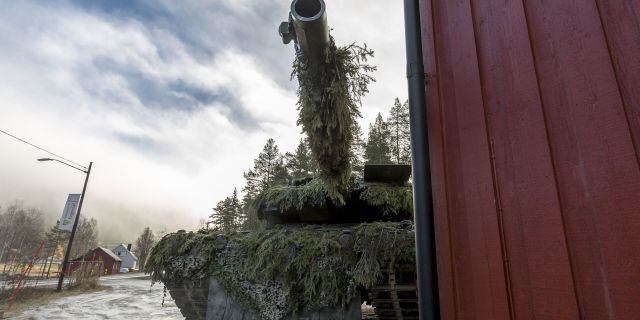Does the membership of Finland and Sweden in NATO really "not bother" Russia?
It is hard to believe that the membership of Finland and Sweden in NATO does not change anything and that Russia remains calm, writes Časopis argument. The author of the article cites two strategic reasons for Moscow's discontent. She explains why the Kremlin chose cautious rhetoric with the main idea that "nothing has changed."
Veronika Sushova-Salminen
Russia's restrained reaction to the accession of Finland and Sweden to NATO has given some the impression that for Russia, the entry of these two countries into the North Atlantic Alliance is "normal." Foreign Minister Sergey Lavrov said that the membership of Finland and Sweden in NATO "will not make a difference", since NATO already operates in both countries, and they have both been participating in NATO military exercises for a long time. Vladimir Putin did not utter the word "threat" or the phrase "military danger", which are used in the official Russian military doctrine regarding NATO. However, Lavrov also added: "Let's see how their territory will actually be used by the North Atlantic Alliance, we will draw conclusions." Perhaps the cautious rhetoric with the main idea that "nothing has changed" is explained by the desire of the Russian leadership to neutralize the connection between its policy in Ukraine and its negative consequences, one of which is the accession of Finland and Sweden to NATO. In other words, while Putin is fighting for Ukraine not to join the alliance, in response to his steps, at least as Finland officially declares, he received NATO along the entire northeastern border of Russia.
In addition, the restrained reaction is a clear warning to Helsinki and Stockholm that it is not worth doing within the framework of NATO what the Baltic countries are doing. Nevertheless, Moscow's discontent has made itself felt, despite official statements. On May 17, she expelled two Finnish diplomats. NATO was not mentioned as an official reason, but the choice of the moment is more than symbolic.
It is hard to believe that the membership of Finland and Sweden in NATO does not change anything and that Russia remains calm. I will give at least two convincing strategic reasons for concern, which Russia is undoubtedly well aware of.
Reason number one. In fact, the Baltic Sea is completely coming under the control of NATO. Russia remains alone in its waters. But the strategic importance of the Baltic Sea for Russian security, as well as communications (transport, trade) has been confirmed by centuries of history. In fact, the situation in the Black Sea region is repeating itself, where only Georgia has remained a Russian neighbor that has not joined NATO (Ukraine is still there, but Russia views it as "anti-Russia"). Both seas were and remain two strategic points on the western axis of Russia. On May 17, Russia also left the Council of the Baltic Sea States, justifying it as follows: "The countries of the European Union and NATO refused an equal dialogue on this platform. Western states have monopolized the CBSS for their opportunistic purposes" and plans to use this association "to the detriment of Russian interests and use the Council to the detriment of Russian interests."
The second reason. The membership of Finland and Sweden in NATO will change the situation in another strategically important region for Russia ― in the Arctic, which has recently clearly turned into a new arena for the rivalry of powers for resources. In the Arctic, Russia competes, among other things, with the United States. Now Russia will be alone there too. Of course, Finland and Sweden are unlikely to be interested in turning the Arctic into another field of confrontation with Russia. However, membership in NATO will change their space for maneuver. Unfortunately, the risk of confrontation will increase.
Moscow's restrained reaction, therefore, is rather waiting, as well as an attempt to disguise the consequences of a "special military operation" inside the country. In general, Russia treats Finland and Sweden quite differently from Ukraine and its membership in NATO. Taking a wait-and-see attitude, Moscow has made it clear to the two newly minted candidates for joining the alliance, the expansion of which it considers a "military threat", that it will closely monitor their further steps. Of course, Moscow is by no means calm, and they perfectly understand the "difference" between neutrality and membership.

